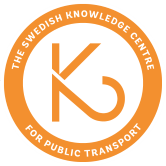The purpose of this study is to look into patronage effects of extended supply outside peak hours on regional public transport services. Previous studies have shown that the service frequency is an attribute of great importance for regional passengers, but little is known about the details regarding peak and off-peak frequencies or service hours. The present study addresses this knowledge gap, departing from the hypothesis that additional off-peak supply means more flexibility for the passengers in terms of departure time options, and possibly also a sense of security for passengers who are uncertain about the time of their (return) trips. Essentially, the added off-peak departures may attract more passengers even if they normally do not or only occasionally use the off-peak services. The patronage effects are explored through four case studies from the region of Scania in southern Sweden. The cases include regional rail and bus services where substantial improvements have been made outside peak hours, resulting in at least hourly all-day services. The results of the study provide new insights into the fundamental planning policy trade-off between maximum frequency and span of public transport services in urban peripheries and rural areas. Importantly, the results suggest that improved time coverage may lead to substantial patronage growth, and this growth is evident also during peak hours, despite unaltered peak hour frequencies. Hence, off-peak departures cannot be assessed only through patronage levels in isolated time periods, let alone on the individual departures.
